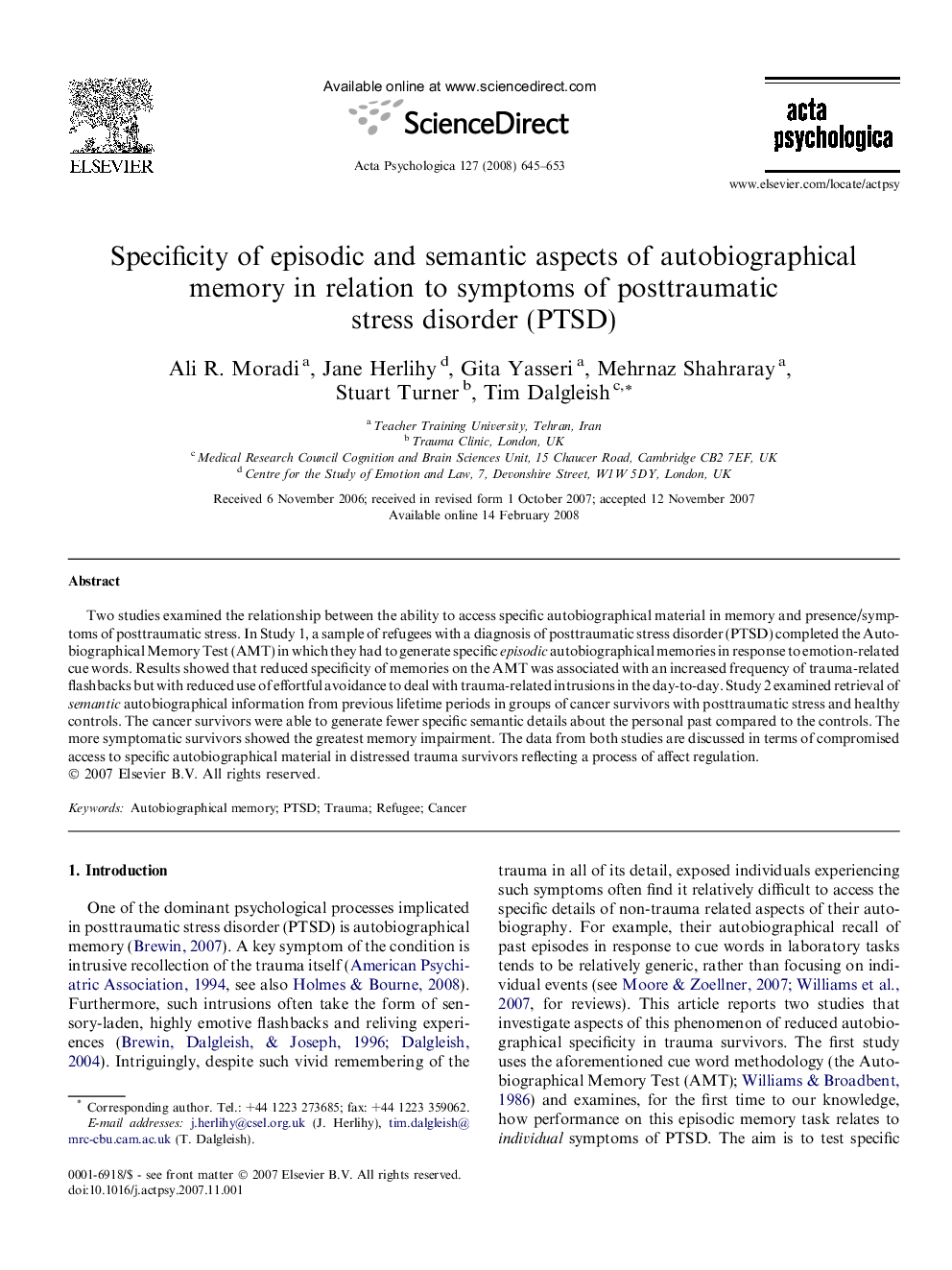| Article ID | Journal | Published Year | Pages | File Type |
|---|---|---|---|---|
| 920444 | Acta Psychologica | 2008 | 9 Pages |
Two studies examined the relationship between the ability to access specific autobiographical material in memory and presence/symptoms of posttraumatic stress. In Study 1, a sample of refugees with a diagnosis of posttraumatic stress disorder (PTSD) completed the Autobiographical Memory Test (AMT) in which they had to generate specific episodic autobiographical memories in response to emotion-related cue words. Results showed that reduced specificity of memories on the AMT was associated with an increased frequency of trauma-related flashbacks but with reduced use of effortful avoidance to deal with trauma-related intrusions in the day-to-day. Study 2 examined retrieval of semantic autobiographical information from previous lifetime periods in groups of cancer survivors with posttraumatic stress and healthy controls. The cancer survivors were able to generate fewer specific semantic details about the personal past compared to the controls. The more symptomatic survivors showed the greatest memory impairment. The data from both studies are discussed in terms of compromised access to specific autobiographical material in distressed trauma survivors reflecting a process of affect regulation.
